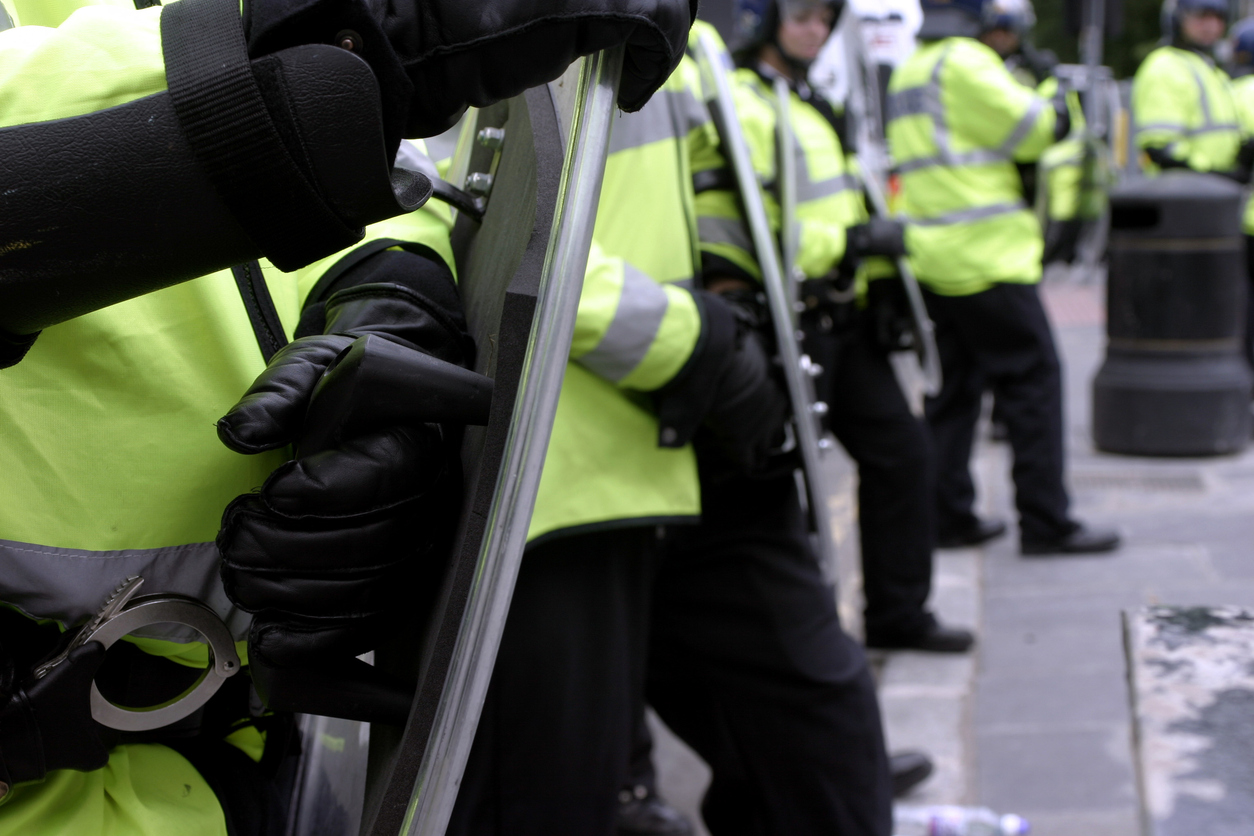Amsterdam Tensions Erupt as Israeli Football Fans Clash with Pro-Palestinian Groups
In an unprecedented display of tension and unrest, the usually peaceful city of Amsterdam became a focal point for one of the most contentious geopolitical issues in the world. Ahead of a UEFA Europa League match between Israel’s Maccabi Tel Aviv and Amsterdam’s Ajax, clashes erupted between Israeli football fans and pro-Palestinian demonstrators, drawing global attention. With historical grievances and national pride at stake, the incident has far-reaching implications for sports, politics, and security in Europe.
The Origins: How Football Became a Platform for Geopolitical Tension
In recent years, international sports events have increasingly become stages for political expression, especially in Europe, where football rivalries often extend beyond the sport itself. As Maccabi Tel Aviv fans arrived in Amsterdam for the game, they were met with a palpable sense of animosity. Tensions boiled over when the fans reportedly took down a Palestinian flag and chanted anti-Palestinian slogans, setting off a chain of confrontations that would unfold over the next few days.
Amsterdam has seen a strong pro-Palestinian sentiment within certain communities, and the Israeli fans' actions struck a nerve. Videos capturing anti-Palestinian chants, such as “No children left in Gaza” and “F*** you Palestine,” quickly spread on social media, igniting a firestorm of controversy and mobilizing both pro-Israel and pro-Palestinian factions within the city.
Timeline of Events Leading Up to the Clashes
The first reported incidents took place on Wednesday when Maccabi Tel Aviv supporters burned a Palestinian flag in Dam Square, Amsterdam’s iconic city center, and allegedly damaged a local taxi. Eyewitnesses confirmed seeing fans chanting incendiary slogans and setting off flares. The inflammatory acts didn’t go unnoticed by the pro-Palestinian locals, who began organizing in response.
The following evening, as Maccabi fans made their way to the stadium for the game, videos showed them continuing with anti-Arab chants. While local police escorted the fans to prevent further escalation, pro-Palestinian groups gathered at Anton de Komplein Square nearby. City officials decided to ban pro-Palestinian demonstrations outside the stadium to avoid further conflict. Although Ajax ultimately won the match 5-0, the violence did not stop after the game. Maccabi supporters were reportedly attacked by masked individuals on scooters as they left the stadium, reigniting clashes and drawing in riot police.
The Immediate Aftermath and Arrests
Amsterdam police moved swiftly to contain the violence, deploying additional resources, including 600 officers, to maintain order in the city. In the chaotic scenes that ensued, at least 62 individuals were detained for various offenses. By Friday, Amsterdam’s chief public prosecutor confirmed that ten suspects remained in custody, charged with crimes like vandalism and public disorder, while another 40 received fines. The police have since been analyzing security footage and social media posts, which could lead to more arrests in the coming days.
The swift police response highlights Amsterdam's commitment to preventing further escalation, particularly as tensions around this issue show no signs of dissipating. However, some questioned whether the measures were sufficient or if more should have been done in advance to address such a highly volatile situation.
Heightened Security and Emergency Measures in Amsterdam
In a bid to restore peace and prevent further demonstrations, Amsterdam’s Mayor Femke Halsema enacted emergency security measures, which included a three-day ban on protests, stop-and-search powers, and restrictions on face coverings. Halsema condemned the attacks on Maccabi Tel Aviv supporters, calling the attackers “anti-Semitic hit-and-run squads,” and underscored her determination to bring those responsible to justice.
These strict measures underscore the serious nature of the situation and signal a shift in how Amsterdam may handle similar events in the future. With global attention focused on the city's handling of the incident, local authorities are under pressure to maintain Amsterdam's image as a safe, open, and multicultural city.
International Reactions: The Impact Beyond Amsterdam
The clashes in Amsterdam quickly caught the attention of international leaders, who responded strongly. Israeli Prime Minister Benjamin Netanyahu expressed deep concern, calling on the country’s intelligence agency, Mossad, to develop a strategy to protect Israeli fans and prevent similar violence at international events. Initially, Israel planned to dispatch two planes to Amsterdam to bring the fans home. However, the government ultimately decided to arrange commercial flights, with police escorts for added security.
The United States also weighed in, with President Joe Biden condemning the attacks as “despicable” and drawing parallels to historical moments of Jewish persecution. United Nations Secretary-General António Guterres expressed shock over the events, calling for respect and restraint from all parties. In contrast, Francesca Albanese, the UN special rapporteur on the occupied Palestinian territories, criticized Western media’s framing of the issue, arguing that it overlooked the Palestinian perspective.
Dima Said, spokesperson for the Palestine Football Association, criticized the narrative that painted the pro-Palestinian response as anti-Semitic. Instead, she emphasized the frustration within the Palestinian community over Israel’s ongoing actions in Gaza and the West Bank. Said questioned the allowance of Israeli teams to compete internationally, calling attention to the larger political context surrounding these incidents.
Future Implications for International Sports Security
The recent events in Amsterdam cast a long shadow over upcoming international sports matches, particularly those involving Israeli teams. Maccabi Tel Aviv’s next scheduled game is in Turkey, but Turkish officials have already announced that it will not be played in Istanbul due to security concerns. Negotiations are underway to find a neutral venue, and heightened security measures are anticipated.
In France, Interior Minister Bruno Retailleau confirmed that Israel’s upcoming Nations League match against France in Paris will proceed as planned. However, authorities will implement increased security to ensure the safety of players and fans.
Lessons Learned: The Intersection of Sports and Geopolitics
The Amsterdam clashes highlight the intense emotions and complex identities that sports can bring to the forefront, especially when national pride intersects with political conflict. In recent years, sports governing bodies like UEFA and FIFA have often faced difficult decisions when politically sensitive games are scheduled. As Amsterdam's experience shows, cities that host these high-stakes events must be prepared to manage both physical safety and political sensitivities.
The recent incident may prompt European authorities to review policies for international sporting events, especially for teams from regions with longstanding political conflicts. Emergency security protocols, coordinated efforts with social media platforms, and enhanced law enforcement training could become standard across Europe as tensions escalate. Amsterdam’s response, which combined immediate police intervention with longer-term preventive measures, may serve as a blueprint for other cities navigating similar events in the future.
The Bigger Picture: Sports, Identity, and Protest
The recent clashes in Amsterdam serve as a powerful reminder of the role that sports can play in cultural identity and protest. For both Israeli and Palestinian supporters, the stakes of this game extended beyond the pitch, embodying complex narratives of national pride, justice, and long-standing historical grievances. Football, often celebrated as a unifying force, also provides a visible and sometimes volatile platform for those seeking to express and assert political and social identities.
The outcome of this incident will likely influence the international sports community, with implications reaching beyond Amsterdam. As cities prepare for future international matches, they may be forced to confront the uncomfortable reality that sports events can no longer be viewed solely as neutral ground, separate from global politics.












